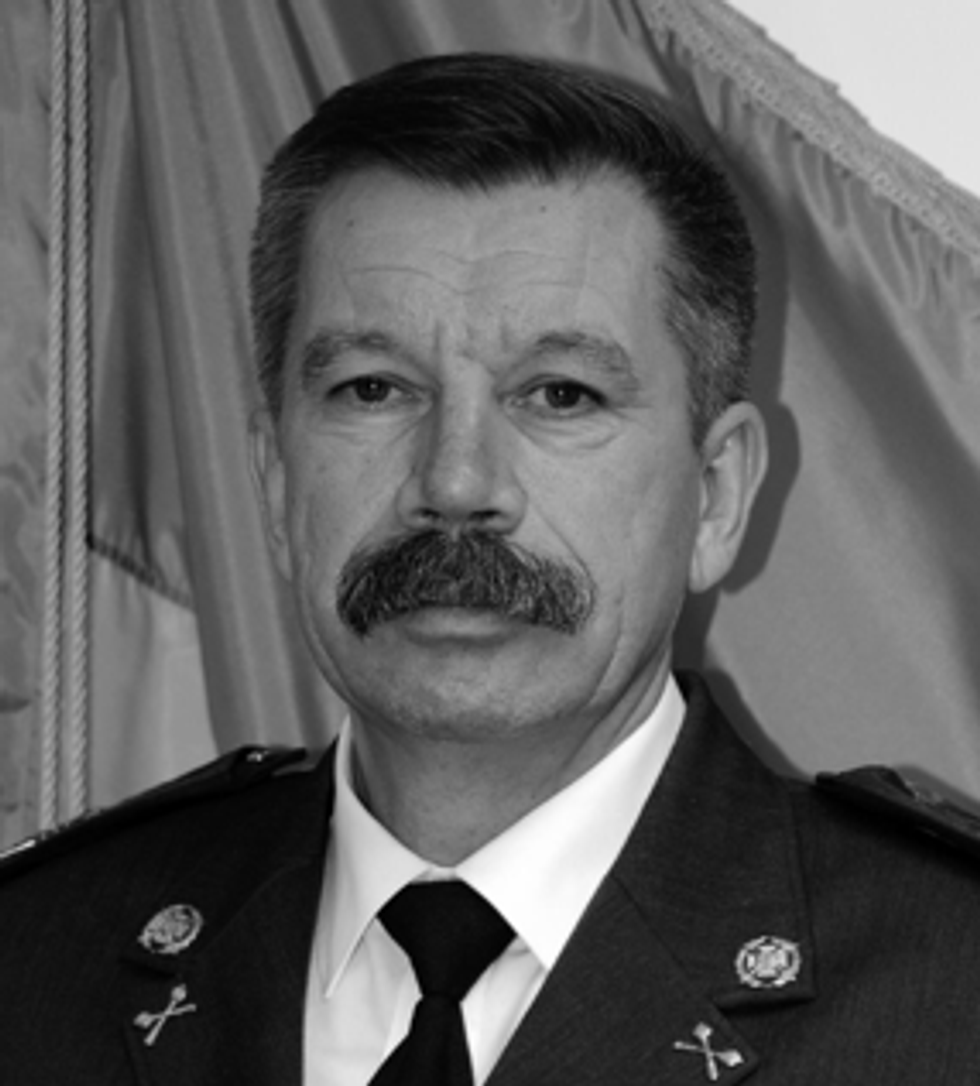Moscow may increasingly look toward private military companies (PMCs), known in Russia as Chastnye Voennie Companiy (ChVK), to exert plausibly deniable and economically and politically sustainable military influence abroad, according to experts speaking to The Cipher Brief. Unlike relying on proxies such as ragtag local militias or organized criminal groups in conflicts such as in Syria, Ukraine and Libya, Russian private military companies offer the promise of greater Kremlin control and combat effectiveness, all while sidestepping the potential domestic political backlash of Russian military casualties in far-off wars.
- In Russia, the provision of “mercenary” services is illegal under Article 208 of the Criminal Code of the Russian Federation and the Russian defense ministry has shied away from officially utilizing PMCs due to fear of undermining the state’s monopoly on armed violence. But there has been a push to begin leveraging privatized military outfits in conflicts abroad, albeit quietly.
- When asked about the possibility of using private military companies as indirect instruments of Russian influence abroad in 2012, Russian President Vladimir Putin responded by saying, “I believe that such companies are a way of implementing national interests without the direct involvement of the state.” He added, “I think we could consider this option.” Some point to 2008 laws allowing state energy firms Gazprom and Transneft to maintain extensive security forces as early precursors to legalizing private military companies in Russia.
David Shedd, Former Acting Director, Defense Intelligence Agency
“Contracting out for some unique military capabilities also enables Putin to tap into unique experiences within those firms that includes not only paramilitary capabilities but language (Arabic, Farsi, and Kurdish in the case of Syria) and principally Arabic in the case of Libya, along with exposure to culture that he may have difficulty finding within regular Russian military forces. Most importantly, however, I believe he is looking for deniability above all else, and minimization of blowback in Russia when there is loss of life in war zones that are difficult to explain politically back home. The private firms also enable Putin to expand his resources where unconventional warfare applies, i.e., special forces experience undertaking tailored operational activities, including kinetic actions.”
But while the illegality of private military companies in Russia could be an indication that the Kremlin does not condone such activity, it could instead be understood that the legal stance is intended to hide Moscow’s official hand. Russian military and intelligence doctrine of deception, known as maskirovka, intentionally creates doubt and confusion as to the involvement and intentions of the Kremlin. Private military companies provide a cheap, politically convenient, controllable and capable avenue to deploy forces in conflict zones around the world.
Major General Volodymyr Havrylov, Defense Attaché of Ukraine in the United States
“Moscow desperately needs to replace or supplement its regular military force deployed in these countries. In Ukraine, Russia denies its presence while in Syria it operates openly. In Ukraine, sooner or later, Russia has to replace its military personnel with some kind of proxy force, fully controlled by but not officially related to Moscow. In Syria, Russia tries to avoid inevitable heavy casualties among its military. Mercenaries are one of the options and Moscow is experimenting with it.”
Michael Sulick, Former Director, CIA National Clandestine Service
“Aside from plausible deniability and domestic backlash, the Russian military is plagued by insufficient troops in the ranks in Syria and the number of draft age youth is declining, hence the need to supplement with private contractors who, as a rule, are experienced and will hopefully decrease the number of casualties. The contractors are undoubtedly more disciplined and security conscious than regular troops who, despite Putin's denials of army involvement, have posted on social media from the eastern Ukraine.”
- Russia’s entrance into pseudo-private military operations came in 2013 with the deployment of 267 Russian contractors for the company Slavonic Corps to Syria. The agreement was reportedly brokered by the Hong Kong-registered Moran Security Group with the Syrian government and blessed by the FSB. The Huffington Post reported that it involved protecting Assad regime assets such as oil and gas facilities to free up Syrian army resources for an offensive against ISIS. But once the Russian contractors landed, they were instead tasked with the combat operation of taking control of the facilities from ISIS’s hands, leading to ill-fated skirmishes against the terrorist group and the public outing of the company, according to the Atlantic Council.
- Possibly the most prominent Russian PMC to date is the Wagner Group, which, according to the Jamestown Foundation’s Eurasia Daily Monitor, is reported to have deployed units to both Ukraine and Syria likely under the direction and funding of Russian military intelligence, the GRU, to test the effectiveness of privatized proxies. While technically private, Wagner seemingly acts as an arm of Russian statecraft and was heavily involved in the fighting in Donbas as well as Palmyra in 2015. Earlier this year, the U.S. Treasury Department announced sanctions against Dmitry Utkin, the founder of Wagner, for recruiting contractors joining separatists fighting in eastern Ukraine. Much of the confusion about the scale and nature of Russia’s direct commitment to the ground battles in Ukraine and Syria is likely due to the deniable component private military companies facilitate.
- As an indication of where Russian private military companies might look to next, Reuters reported that a Russian firm called RSB-Group sent military contractors to eastern Libya late last year and departed in February after reportedly completing their demining mission in support of the controversial regional leader General Khalifa Haftar. Haftar is vying for a greater leadership role of Libya as his forces employ questionable tactics in the country’s volatile east, independent of the UN-backed government in Tripoli. The use of a private firm in this instance allows the Kremlin to insulate itself from claims that it is supporting a rogue strongman rather than the internationally-recognized government.
Michael Kofman, Research Scientist, CNA Corporation
“PMCs have shown that they can make the difference on distant battlefields and are a useful offset when Russia wants to keep its own military footprint small. They are also an effective tool in support of state sponsored insurgency or unconventional warfare, because they are deniable and disposable. They operate with state support, and sanction, but in a legal grey area, which is probably how many inside the Russian power ministries like it. Having taken part in operations in Ukraine and Syria, Russian-supported or affiliated PMCs may provide early indications of a state interest in a particular conflict, and form what may be considered an exploratory wing. Much of Russian strategy is emergent, success begets success, and in this respect mercenaries are a useful way by which to get involved in a conflict without getting ‘involved’ in it.”
Private military companies are conceptually different than private security companies hired for defensive asset and VIP protection and training – though at times the distinction blurs. PMCs are expeditionary, offensively oriented private entities equipped with the mandate – whether official or not – to engage in combat that seeks to defeat or deter opponents and gain territory. Unlike the mercenaries of old, private military companies are structured as multinational corporations, often with a web of subsidiaries and shell companies in various legal jurisdictions around the globe.
- While technically private entities, private military companies are often hired by foreign governments at the behest or in line with their home country’s national policies. They appear under the context of a deficiency in political will to sustain prolonged military operations abroad and often deploy with a backdrop of natural resource exploitation with promises of follow-on contracts to secure installations upon completing their mission.
- Following the protocols of the infamous South African private military company of the 1990s, Executive Outcomes, in their campaigns in Sierra Leone and Angola, the Kremlin is reportedly using such market-based incentives in Syria by granting oil and mining rights to private military contractors that secure territory from extremists. According to The New York Times, two Russian companies, Evro Polis – who is allegedly cooperating with Wagner, and Stroytransgaz, have already signed such agreements with the Syrian government.
Michael Kofman, Research Scientist, CNA Corporation
“PMCs in Russia are less a business, and more an extension of the state’s ability to pursue interests where extra territorial operations are required. PMCs can make a decisive difference in conflict where there is a low density of forces on the battlefield, and Russia is seeking to participate in a low cost or deniable manner. The units are almost always more capable than locals, and the current Russian preference is to only use their own military power in short bursts on the battlefield for decisive political effect. Mercenaries are much more effective at sustaining prolonged efforts, because their losses are acceptable in domestic politics.”
Major General Volodymyr Havrylov, Defense Attaché of Ukraine in the United States
“At the same time Moscow can't proceed with massive use of private military companies in its foreign projects without change in national legislation. And here is a challenge for Moscow. Because, legalization of private military companies in Russia may pose a potential threat to a highly centralized political system created by Putin.”
Editor’s Note: The Russian Embassy in Washington declined to comment for this analysis.
Levi Maxey is a cyber and technology analyst at The Cipher Brief. Follow him on Twitter @lemax13.















